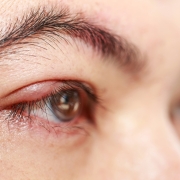Is Blepharitis Easy to Treat?
Blepharitis is the medical term for irritated or itchy eyelids. As a general rule, it is a relatively easy condition to treat, though the treatment is typically more ongoing than a one-and-done solution. We’ll look at what you should know about the causes behind the condition and the common treatments for it.
What Causes Blepharitis?
Typically, irritated eyelids in North Syracuse, NY, can be traced back to poor hygiene. Bacteria in the eyelid will impact the eye’s natural balance and lead to irritation. However, it can also be caused by skin conditions like dermatitis or rosacea, particularly if the oil glands are too clogged to produce enough healthy tears to wash away anything from bacteria to allergens.
How to Treat Blepharitis
If you have blepharitis, the most common treatments include:
- Cleaning/Compresses: Simply washing the eyelids a couple of times with a mild soap or shampoo can be enough to keep your eyelids healthy. Leaving a warm compress on the eyes for 5 minutes can also remove debris and potentially open the eyelid glands for healthier tears.
- Artificial tears: Artificial tears will largely relieve the symptoms rather than stop them. However, if you have a particularly stubborn case, they can abate the dryness and irritation that you feel throughout the day.
- Antibiotics: If your blepharitis is caused by bacteria, prescription eyedrops or ointments may be prescribed. For particularly severe cases, you may need to take oral medication.
- Meibomian gland treatment: Your tears need both oil and saline to wash away the grit and the bacteria that can build up on your eyelids throughout the day successfully. Warm compresses can help treat clogged glands, but you may need more involved therapy to successfully unclog the glands that produce this important oil.
Find an Eye Doctor in North Syracuse, NY
Whether your condition is caused by allergens or bacteria, the right eye doctor can tell you more about what you can do to treat your irritated eyelids. At McPherson Optometry P.C., our staff will look for the underlying causes, making you less likely to have a recurrence. Contact us today if you’re looking for a reputable eye doctor in North Syracuse, NY, that can help.


